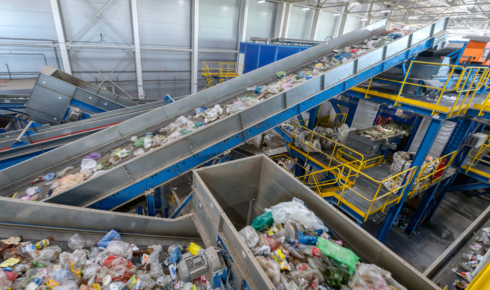India’s industrial growth has been remarkable, but with rapid expansion comes an equally pressing challenge: managing industrial waste. From discarded plastics to metal scraps, industries are generating waste at an unprecedented scale. Left unmanaged, this waste not only pollutes the environment but also undermines resource efficiency.
The good news? The rise of plastic recycling plantsandmetal recycling companies in India is reshaping how the nation addresses its waste management challenges. Together, they hold the key to building a cleaner, more sustainable, and circular economy.
The Global Plastic Waste Crisis and India’s Role
The world is grappling with a plastic waste crisis. According to the OECD’s Global Plastic Outlook, the world generated 353 million tonnes of plastic waste in 2019, yet only 9% was recycled. Nearly 50% ended up in landfills, while 22% was discarded in uncontrolled environments, eventually flowing into rivers and oceans. If left unchecked, global plastic waste accumulation is projected to triple by 2030, reaching more than 1,000 million tonnes.
India, too, is at the center of this challenge. By 2024, the country was generating nearly 9.5 million tonnes of plastic waste annually, ranking it among the top producers worldwide after the USA and the European Union. The bulk of this waste comes from packaging materials such as polypropylene (PP), polyethylene (PE), and polyvinyl chloride (PVC).
This is where the importance of a plastic recycling plant in India becomes evident. With recycling capacity growing steadily—from 8.7 million tonnes in FY23 to 9.71 million tonnes in FY24—India is on track to reach 18–19 million tonnes by 2030.
Driven by environmental awareness, government initiatives, and advances in recycling technologies, the country’s recycling ecosystem is evolving rapidly.
Why Metal Recycling is Just as Important
India’s scrap business generates vast amounts of ferrous and non-ferrous metal waste from industries like automotive, construction, and electronics. Metals such as copper, steel, and aluminum are critical to infrastructure development, yet mining them comes at a heavy ecological and financial cost.
Here, metal recycling companies in India play a transformative role. By recovering metals from scrap and reintroducing them into the production cycle, these companies conserve natural resources, reduce carbon emissions, and cut down on energy-intensive mining. Moreover, with India’s industrial expansion, the demand for metals is rising sharply, making recycling not just a sustainability measure, but an economic necessity.
Synergy of Plastic and Metal Recycling in Reducing Industrial Waste
Individually, plastic recycling plants and scrap recycling companies in India contribute significantly to waste reduction. But when combined, their impact multiplies:
- Resource Efficiency: Together, they minimize dependence on virgin raw materials, whether it’s petroleum-based plastics or mined metals.
- Circular Economy: Recycling ensures that materials stay in use longer, fueling industries without draining natural ecosystems.
- Lower Waste Footprint: By diverting plastics and metals away from landfills, both streams of recycling address two of the largest contributors to industrial waste.
- Support for Sustainability Goals: India’s commitments under its circular economy roadmap and sustainability pledges are bolstered by strengthening recycling ecosystems.
Government Push Towards Industrial Waste Recycling
The government’s regulatory measures are accelerating both plastic and metal recycling. For plastics, initiatives like the Plastic Waste Management Rules 2016, the ban on single-use plastics, and Extended Producer Responsibility (EPR) schemes are driving industries to recycle more. On the metals side, policies such as the Steel Scrap Recycling Policy and frameworks for non-ferrous metal recycling are helping structure the sector.
Together, these efforts are paving the way for more efficient recycling plants in India, ensuring that industrial growth aligns with sustainability.
Building a Sustainable Future
India’s waste management challenge is vast, but it is also an opportunity. By investing in both plastic recycling plants and metal recycling companies, industries can drastically reduce their waste footprint while ensuring steady access to recycled raw materials. Consumers, too, are increasingly aware of the need for responsible waste practices, creating more momentum for change.
Among the leading players championing this shift, Jain Metal Group stands out. With its expertise in metal recycling and its growing role in the scrap business in India, the group exemplifies how scrap recycling companies in India can drive industrial sustainability. By combining cutting-edge recycling practices with a vision for a circular economy, Jain Metal Group is helping India transition towards a future where growth and environmental responsibility go hand in hand.

